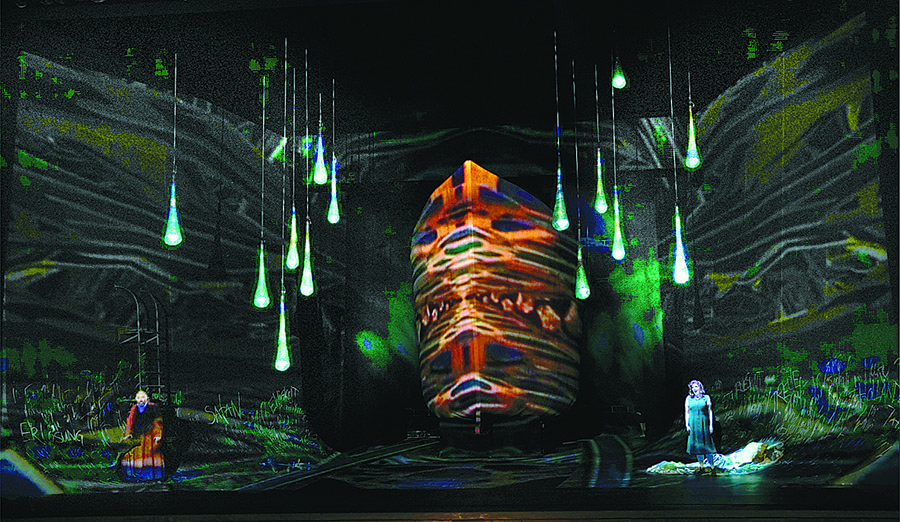

Composed in 1841, The Flying Dutchman is based on German author Heinrich Heine's novel The Memoir of Mister von Schnabelewopski, which retells the European maritime legend about a doomed ship that sails forever. Heine added to the tale a key plot that the Dutch captain can only be redeemed by the love of a faithful woman. Wagner took the theme that Heine used as irony and satire to create an opera about redemption and faithful love.
In the opera, the heroine Senta lunges off the cliff to fulfill her vow to be faithful to the Dutchman, and successfully redeems him from the curse.
The opera marked a turning point in Wagner's career, ushering in more maturity in his works. It is also one of the most popular Wagner operas.
This year being the 210th anniversary of the birth of Wagner, the Shanghai Opera House decided to revive the production and take it on a tour of three Chinese cities, with five shows in May.
"Wagner is a genius in music history who started an opera revolution," Xu Zhong, president of the Shanghai Opera House and conductor of the production, says.
"Meanwhile, his masterpieces demand expert technique, persistence and the physical prowess of singers and instrumentalists, as well as the control of the conductor.
"Producing a Wagner's opera brings challenges to the stage design and hardware equipment of an opera house, too. All of this means a Wagner production poses challenges for producers, performers and audiences. It takes a strong team to make a quality Wagner production," Xu says.